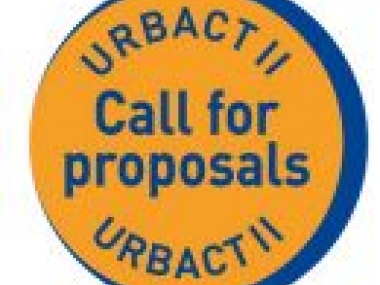URBACT announces new pilot networks
Edited on
06 February 2015How can European cities maximise the benefits of their involvement in URBACT projects? Two new initiatives are about to address that very question in separate pilot networks; one being designed to support cities as they implement their Local Action Plan, while the other focuses on sharing good practices. URBACT III is the context for both these pilots, as the programme looks to exploit the wealth of experience gathered to date.

Networks for delivering projects…
Cities involved in URBACT II have so far been working together to prepare their Local Support Groups and Local Action Plans – and then implementing those plans without further help. The idea of the new Pilot Deliverable Networks is to prolong the cooperation of an URBACT project into that delivery phase. Ahead of the 2014-2020 funding period, the European Commission has already underlined the support that URBACT III could give cities as they look to implement integrated urban policies. At the same time, feedback from several URBACT projects in the current programme has highlighted the challenges of the implementation phase.
To meet this need for capacity-building, three networks from the 2nd Call for Proposals will continue as Pilot Deliverable Networks for a 16-month period from December 1st, 2013. A total of 17 cities are involved, with the projects devoted to workforce development (ESIMeC), electric vehicles (EVUE) and improving access to employment and services for working age Roma (ROMA-Net). These networks are expected to identify processes for implementing Local Action Plans (including indicators, results assessment and training), engaging with Local Support Groups and re-structuring if necessary of any resources.
… and sharing good practices
That desire to make the most of URBACT’s benefits is also the driving force behind the launch of six Pilot Transfer Networks in January 2014. The emphasis here is on transferring ‘good practices’ from one city to another in the field of integrated sustainable development. By supporting a number of small-scale projects in 25 cities, the aim is to examine the various tools and processes that could be embedded in URBACT III, with a particular focus on achieving the EU2020 objectives. The six networks cover urban planning/the environment (TUTUR, Diet for Green Planet, Placemaking as Open Living Lab), innovation (GeniUS:Open), inclusion (Healthy Ageing) and entrepreneurship (GastroUrbact).
Their work will be carried out in considerable detail. In each project, the transfer will be prepared during staff exchanges and visits to the city providing the good practice. An extensive description of the practice itself will be drawn up, along with the baseline situation in each of the receiving cities. The latter will later establish transfer logs (accounts of the transfer process and achievements) and thematic outputs that would be of value to cities outside the partnership. Each of the six pilot networks will have a dedicated Thematic Pole Manager, who will focus on the content, methods for exchange and learning and delivery of these outputs. Clearly, it is expected that the good practice will be transferred and implemented by each receiving city. It is also expected that improvements and recommendations will be made about the practice itself for the benefit of cities involved in the partnership and also those outside. Ultimately, the final outcome will be a refined good practice.
Submitted by admin on
